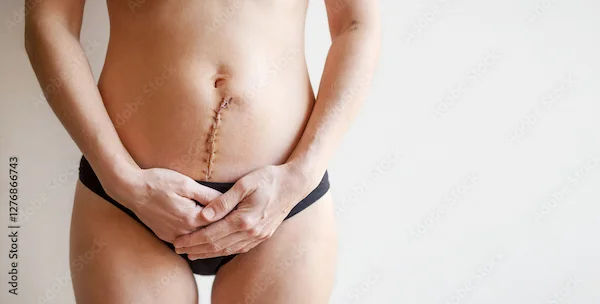Personality Changes After Hysterectomy
Personality changes after a hysterectomy can occur due to hormonal shifts and emotional stress. Understand the potential effects, why they happen, and ways to cope during your recovery journey.

Written by Dr.Sonia Bhatt
Last updated on 6th Jul, 2025

Introduction
A hysterectomy—the surgical removal of the uterus—is a common procedure performed for various medical reasons, such as fibroids, endometriosis, or cancer. While the physical recovery is often discussed, many women experience emotional and psychological changes after the surgery. If you or a loved one has undergone a hysterectomy and noticed shifts in mood, personality, or emotional well-being, know that these feelings are valid and not uncommon.
This article will help you understand why personality changes may occur after a hysterectomy, how to recognise them, and what you can do to manage them effectively.
Why Do Personality Changes Happen After Hysterectomy?
Several factors can contribute to emotional and psychological shifts after a hysterectomy:
1. Hormonal Changes
If the ovaries are removed along with the uterus (oophorectomy), the body experiences a sudden drop in estrogen and progesterone, leading to surgical menopause. Even if the ovaries are preserved, their function may be temporarily or permanently affected, causing hormonal fluctuations. These changes can lead to:
Mood swings
Irritability
Anxiety or depression
Fatigue and brain fog
2. Emotional Impact of Surgery
A hysterectomy can be a significant life event, especially for women who associate their uterus with femininity, fertility, or personal identity. Feelings of grief, loss, or even relief (depending on the reason for surgery) can influence emotional well-being.
3. Physical Recovery and Stress
Post-surgery pain, fatigue, and lifestyle adjustments can contribute to stress, which may manifest as mood changes or emotional sensitivity.
4. Sleep Disturbances
Hormonal shifts and recovery-related discomfort can disrupt sleep, leading to irritability and mood swings.
Consult Top Gynaecologists
Common Personality and Emotional Changes
Women may experience:
Increased irritability or anger: Small things that didn’t bother you before might now feel overwhelming.
Anxiety or sadness: Worries about health, body image, or life changes may surface.
Lower motivation or energy: Fatigue from surgery and hormonal changes can make daily tasks harder.
Feeling "different" or disconnected: Some women report feeling like they’ve lost a part of themselves.
These changes are usually temporary but can last for months in some cases.
How to Manage Emotional Changes After Hysterectomy?
Here are some helpful strategies to manage emotional changes after a hysterectomy:
1. Talk About Your Feelings
Share your emotions with loved ones or a therapist.
Join a support group for women who have had hysterectomies.
2. Consider Hormone Therapy (If Needed)
If your ovaries were removed, hormone replacement therapy (HRT) may help balance mood swings and other menopausal symptoms. Consult your doctor to see if HRT is right for you.
3. Prioritise Sleep and Rest
Maintain a regular sleep schedule.
Practice relaxation techniques like deep breathing or meditation.
4. Stay Physically Active (When Cleared by Your Doctor)
Gentle exercise like walking or yoga can boost mood and energy levels.
5. Eat a Balanced Diet
Include foods rich in omega-3s (like fish, flaxseeds) and vitamin B (whole grains, leafy greens) to support brain health.
Limit caffeine and sugar, which can worsen mood swings.
6. Be Patient with Yourself
Recovery is both physical and emotional—give yourself time to heal.
When to Seek Help?
If mood changes persist or worsen, leading to:
Prolonged sadness or hopelessness
Severe anxiety or panic attacks
Difficulty functioning in daily life
Thoughts of self-harm
Please reach out to a mental health professional or your doctor immediately.
Conclusion
Personality and emotional changes after a hysterectomy are normal and often temporary. Understanding the reasons behind these shifts—hormonal, emotional, or physical—can help you navigate this phase with greater ease. Remember, you are not alone, and support is available.
If you're struggling with mood changes post-hysterectomy, consider speaking with a healthcare provider. Apollo24|7 offers consultations with gynaecologists and mental health professionals who can guide you through recovery.
Consult Top Gynaecologists
Consult Top Gynaecologists

Dr. Alapati Jyotsna
Obstetrician and Gynaecologist
4 Years • MBBS MS Obstetrics and Gynaecology
Visakhapatnam
Apollo 24|7 Clinic - Andhra Pradesh, Visakhapatnam

Dr. Shailaja L
Obstetrician and Gynaecologist
16 Years • MBBS, MS
Bangalore
Apollo 24|7 Clinic - Karnataka, Bangalore

Dr. Veena H
Obstetrician and Gynaecologist
16 Years • MBBS DGO
Bangalore
Apollo 24|7 Clinic - Karnataka, Bangalore

Dr. Veena Shinde
Obstetrician and Gynaecologist
34 Years • MBBS , Diploma (Gynecology & Obestritics), MS (Obstetrics & Gynecology)
Mumbai
Shinde Medicare Hospital Pvt Ltd, Mumbai

Dr Homeira Nishat
Obstetrician and Gynaecologist
34 Years • MBBS, Diploma in Obstetrics & Gynaecology
Bengaluru
Cure Hospital and Clinic, Bengaluru
Consult Top Gynaecologists

Dr. Alapati Jyotsna
Obstetrician and Gynaecologist
4 Years • MBBS MS Obstetrics and Gynaecology
Visakhapatnam
Apollo 24|7 Clinic - Andhra Pradesh, Visakhapatnam

Dr. Shailaja L
Obstetrician and Gynaecologist
16 Years • MBBS, MS
Bangalore
Apollo 24|7 Clinic - Karnataka, Bangalore

Dr. Veena H
Obstetrician and Gynaecologist
16 Years • MBBS DGO
Bangalore
Apollo 24|7 Clinic - Karnataka, Bangalore

Dr. Veena Shinde
Obstetrician and Gynaecologist
34 Years • MBBS , Diploma (Gynecology & Obestritics), MS (Obstetrics & Gynecology)
Mumbai
Shinde Medicare Hospital Pvt Ltd, Mumbai

Dr Homeira Nishat
Obstetrician and Gynaecologist
34 Years • MBBS, Diploma in Obstetrics & Gynaecology
Bengaluru
Cure Hospital and Clinic, Bengaluru




